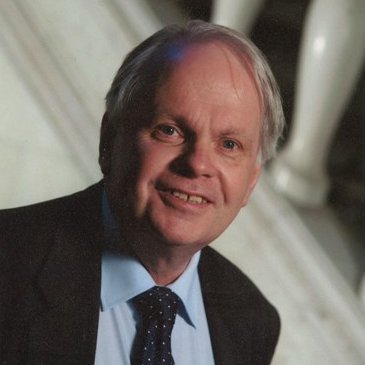Keynote speakers
Susan Bluck
University of Florida
It’s About Time: Recalling our Lived Experience as We Age
Autobiographical memory is intimately linked with time. It involves looking back from wherever we stand in the lifespan, recalling past experiences – from childhood until today. If not disrupted by disease, the experience of ‘being me over time’ grows in tandem with chronological age. I review psychosocial functions of autobiographical memory foundational for humans to navigate their world. The central focus of the talk, however, is how individuals interpret and contextualize autobiographical memories to fulfill larger human strivings and motivations. That is, autobiographical memory also involves autobiographical reasoning about events that have occurred days or decades ago. I provide empirical examples of how individuals create meaning, express purpose, find redemption, savor wisdom and reveal virtues - as they recall life experiences across adulthood. As such, though remembering our personal past serves basic functions it also allows for a deep, textured experience of who we are and where we have been. The talk closes with illustrations of how reminiscence techniques can be used with older persons in applied settings.
Read more about Susan Bluck
Mohamad El Haj
University of Nantes
Geriatric unit, Tourcoing Hospital
The Diminished Autobiographical Memory in Alzheimer's Disease, From Theoretical Standpoint to Clinical Implications
While autobiographical memory errors occur in everyone’s daily life, they are much more prevalent in patients with Alzheimer’s disease. Patients and their family members are constantly affected by the decline of autobiographical memory. While some autobiographical errors may be, somehow, benign (e.g., when a patient forgets the name of her/his city of birth), others seriously affect the sense of self and identity in the advanced stages of the disease (e.g., a patient’s difficulty to answer the basic question: “who am I?”). Based on fundamental literature, we provide a comprehensive view regarding the characteristics of decline of autobiographical memory in patients with Alzheimer’s disease (e.g., the patients’ difficulties to retrieve and reexperience specific memories). Based on clinical and experimental research, we also describe some strategies that can be implemented to alleviate, to some extent, decline in autobiographical memory in patients with mild Alzheimer’s disease.
Read more about Mohamad El Haj
Asaf Gilboa

Rotman Research Institute at Baycrest Health Sciences
Psychology Department, University of Toronto
Toronto Rehabilitation Institute, University Health Network
Has the Notion of Systems Consolidation Outlived its Usefulness? A Representational Account of Interactive Memory Dynamics
Standard systems consolidation theories posit an obligatory, time-limited, role for the hippocampus before declarative memory can be cortically represented independently of the hippocampus. In this talk I will suggest that instead, events create changes to neural representations across multiple memory systems right from the outset. Different event representations co-exist, influence and modify each other and are differentially expressed depending on factors such as relevance to current goals, attention, context specificity or relatedness to prior knowledge. There is no unidirectional time-dependent biological process of memory trace transformation or migration, only interactively modulated synaptic consolidation and re-consolidation processes at multiple levels. Because hippocampal memories are so dominant early on, and because memory tasks emphasize detailed event-specific memories, expressions of cortical representations at short delays are rarely observed. Differences in the dynamics of memory expression are mistaken for a process of systems consolidation. I will discuss the relevance of this model to patterns of acquisition, retention, expression and loss of autobiographical memories across the lifespan and in pathologies of memory.
Read more about Asaf Gilboa
Muireann Irish
University of Sydney
Rethinking the Nature of Autobiographical Memory – Lessons From Semantic Dementia
The syndrome of semantic dementia offers compelling insights into the neurocognitive architecture of autobiographical memory, allowing us to glimpse the effects of semantic memory loss on retrieval of the personal past. More recently, studies exploring the capacity for future thinking in semantic dementia indicate that semantic memory also plays an important role in scaffolding the construction of novel events. In this talk, I will present an overview of our work to date revealing how the progressive degeneration of semantic memory disrupts the capacity for autobiographical retrieval from the past, as well as the ability to envisage the future. In doing so, I hope to highlight the ways in which episodic and semantic representations likely interact in the service of complex expressions of cognition, as well as considering what it might be like to lose these uniquely human functions.
Read more about Muireann Irish
Michael D. Kopelman
King’s College London
Retrograde Amnesia in Alzheimer Dementia: The Temporal Gradient and the Reminiscence Bump
This talk with review findings and theories regarding the nature of retrograde amnesia in Alzheimer dementia (AD) and other forms of brain disease. Current theories make differing predictions about whether there will be sparing of early memories (a ‘temporal gradient’) in episodic and semantic memory in brain damage and dementia. Research into this topic has produced inconsistent findings, which partly relates to the different types of test employed in the various studies. Despite some modification of earlier theories, these issues have remained unresolved. Separately, investigations of healthy (and depressed) participants have frequently established the presence of a ‘reminiscence bump’ in autobiographical memory retrieval, as discussed elsewhere in this symposium; and reviews of the literature in RA suggested that this might be pertinent to the occurrence of a temporal gradient in brain disease. Findings from a study investigating these phenomena in AD will be presented, and their implications will be considered.
Read more about Michael D. Kopelman
David Pillemer

University of New Hampshire
The Shape of Autobiographical Memory:
Age Distributions of Personal Memories and Life Story Chapters Across the Lifespan
I will present, synthesize and critique research examining age distributions of personal memories and life story chapters elicited by directed memory probes and revealed in spoken oral histories. Age-related memory patterns are evident not only in studies of the reminiscence bump that target late adolescence and early adulthood, but also in studies examining other lifetime periods that have received comparatively little scientific attention. Research shows how memory age distributions vary as a function of emotional valence, perceived control and especially transitional status. More broadly, evidence suggests that temporal landmarks are key components of autobiographical memory organization and representations of self. I conclude by discussing potential implications for understanding memory decline in old age and dementia.
Read more about David Pillemer
David C. Rubin
Department of Psychology and Neuroscience, Duke University
Center on Autobiographical Memory Research, Department of Psychology, Aarhus University
A Brief History of the Bump
I will review the history of the bump as a precise mathematical description of a highly replicable, real world memory phenomenon. We noticed the bump in data we had and were trying to understand as a deviation from retention functions, which usually decrease. We then collected data from other researchers and found that it was a general occurrence. We described it simply as what was left when we subtracted two precise and theoretically better-understood components: the retention function for autobiographical memories and childhood amnesia.
In contrast to its empirical robustness, the bump is still in search of a theoretical explanation. Like most other real world phenomena, it may always require a combination of theoretical explanations. This is especially true for the bump as it has been included in studies using different cuing and retrieval methods, participant populations, analysis techniques, and theoretical goals.
Future expectations are considered.
Read more about David C. Rubin
Dorthe Berntsen
Center on Autobiographical Memory Research, Department of Psychology, Aarhus University
The Reminiscence Bump and Involuntary Autobiographical Memories in Aging and Dementia
Research on autobiographical memory has a lot to offer to the understanding of memory in aging and dementia. However, several perspectives have been understudied, which motivates this conference. One example is the preservation of the reminiscence bump in dementia together with maintenance of semantic knowledge of cultural life scripts. I review evidence and discuss implications for theories of retrograde amnesia. Another example is involuntary autobiographical memories—that is, memories of events that arise spontaneously in response to situational cues. Recent findings suggest that such memories are less affected by aging than memories retrieved deliberately and that they can be used to facilitate autobiographical remembering in dementia. For this strategy to be effective, the memory cues should address the best-preserved memories in dementia, which appears to be events from childhood and young adulthood (the period of the bump). I review studies successfully pursuing this strategy and discuss their implications.
Read more about Dorthe Berntsen





